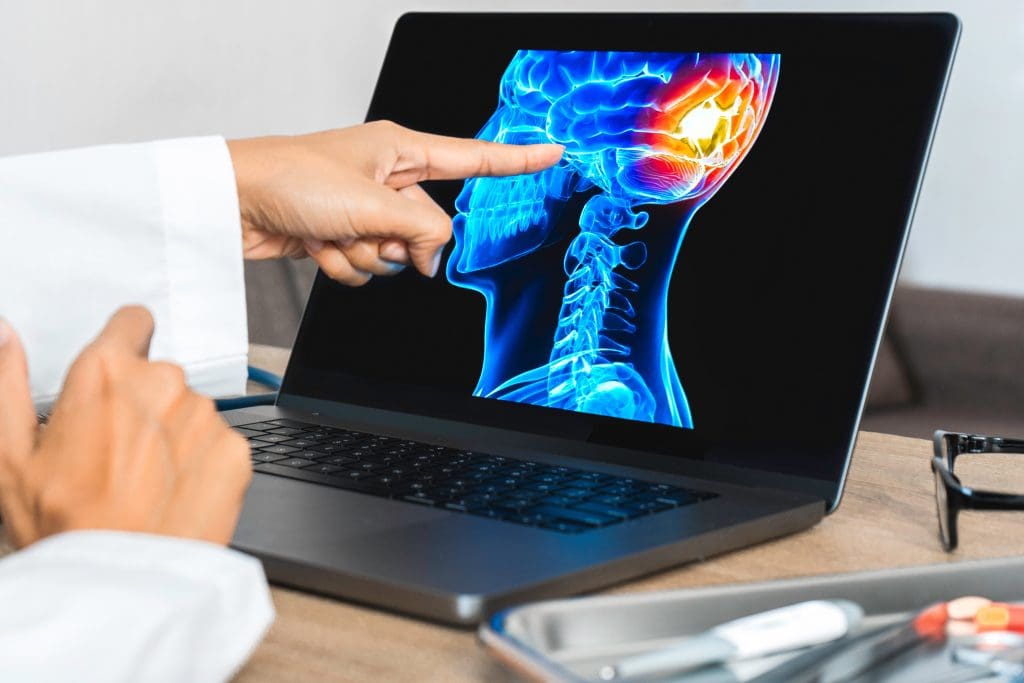Traumatic Brain Injuries (TBI) can profoundly affect individuals, leading to physical, emotional, and cognitive challenges. This article delves into the causes, types, diagnosis, and treatment of TBIs. Additionally, it examines the process of recovering compensation for TBI, addressing liability determination, available compensation types, and steps for pursuing compensation. Stay tuned to delve deeper into this critical issue.
Understanding Traumatic Brain Injuries (TBI): Causes and Types
Understanding Traumatic Brain Injuries (TBI) entails recognizing the profound impacts of brain damage stemming from various incidents. Legal guidance from a specialized brain injury lawyer is crucial in cases of negligence leading to TBI. Multiple causes, including vehicular accidents, falls, sports-related injuries, and assaults, can result in TBIs, causing cognitive, emotional, and physical impairments. Seeking compensation for TBI victims is vital, with legal professionals aiding in navigating the legal process and holding accountable parties responsible.
Symptoms of Traumatic Brain Injuries
Recognizing the Symptoms of Traumatic Brain Injuries (TBI) is vital for diagnosing and managing the physical, emotional, and cognitive effects following an injury. Physical signs may include headaches, dizziness, blurred vision, and sensitivity to light or sound. Emotional symptoms may manifest as mood swings, depression, anxiety, or irritability, while cognitive impairments can lead to memory difficulties, poor concentration, or decision-making challenges.
These symptoms profoundly impact daily functioning, hindering work, social interactions, and basic tasks. Recovery from TBIs often requires a comprehensive approach involving medical treatment, therapy, and support services to address the diverse challenges presented by these symptoms.
Physical Symptoms: Physical Symptoms of Traumatic Brain Injuries (TBI) may lead to extensive medical expenses, rehabilitation costs, and potential loss of wages. Cognitive impairments such as memory loss and difficulty concentrating can be debilitating and require specialized therapies. A multidisciplinary approach involving neurologists, therapists, and speech therapists is crucial for maximizing recovery potential.
Emotional Symptoms: Emotional Symptoms following Traumatic Brain Injuries (TBI) can result in pain, emotional distress, and potential disability. Mood swings, anxiety, and depression may affect relationships and daily functioning. Support from family and understanding the psychological toll are essential for coping with these challenges.
Cognitive Symptoms: Cognitive Symptoms associated with Traumatic Brain Injuries (TBI) may require long-term care and mental rehabilitation. Impairments in memory, attention, and decision-making can disrupt daily activities, necessitating specialized evaluations and treatment plans. Legal settlements may assist in covering the substantial costs of treatment and care.
Diagnosing Traumatic Brain Injuries
Accurately diagnosing Traumatic Brain Injuries (TBI) involves thorough tests like CT scans and MRIs. Physical exams assess symptoms such as memory problems and speech difficulties. Neurological tests evaluate brain function, guiding treatment plans based on imaging results.
These tests also support legal compensation claims. Imaging tests like CT scans and MRIs play a crucial role in assessing the extent of brain injury and monitoring recovery post-TBI. CT scans use X-rays for detailed images, revealing skull fractures and bleeding, while MRIs offer detailed brain tissue views. Functional MRI tracks brain activity, aiding in understanding cognitive functions, and Diffusion Tensor Imaging focuses on tracking white matter integrity.
Treatment Options for TBI
Treatment Options for Traumatic Brain Injuries (TBI) include medications, therapies, and surgeries to address patients’ complex needs. Medication protocols involve pain management and anti-seizure drugs. Therapies like physical and occupational therapy aid in recovery and functioning improvement. Surgery may be necessary for intracranial bleeding or skull fractures.
A multidisciplinary team of neurologists, neurosurgeons, and therapists collaborates for individualized care. Medications for TBIs include corticosteroids for inflammation, anticonvulsants for seizures, and amantadine for attention. Therapies focus on mobility and daily tasks to enhance independence. Surgery like craniotomy relieves pressure and controls bleeding. Post-operative care includes monitoring and rehabilitation for recovery.
Recovering Compensation for TBI
Recovering compensation for Traumatic Brain Injuries (TBI) entails navigating complex legal procedures to determine liability and secure various types of compensation, covering medical expenses, lost wages, and long-term care. After establishing liability, the next crucial step involves evaluating damages, including financial losses such as medical bills and rehabilitation costs and non-economic damages like pain and suffering.
Negotiation with insurance companies and other parties is necessary to reach a settlement that adequately compensates the TBI victim. Due to the complexities involved, this process often requires legal expertise.
Determining Liability: Determining liability in Traumatic Brain Injury (TBI) cases involves assessing the role of insurance companies, coverage policies, and the impact of lost income on the victim’s financial stability. Insurance providers play a crucial role in TBI claims by evaluating the policy coverage to determine the extent of financial responsibility. Calculating lost income due to a TBI is a meticulous process that considers the victim’s earning capacity, future potential earnings, and the impact of the injury on their ability to work.
Types of Compensation Available: Various types of compensation are available for Traumatic Brain Injury (TBI) victims, ranging from settlement values for medical expenses to long-term care provisions and personal injury coverage. These diverse forms of compensation aim to support individuals in their recovery journey post-TBIs. Adequate compensation is crucial to cover the extensive costs related to TBIs, including ongoing medical care, therapy, assistive devices, and necessary modifications to living arrangements.
Steps to Take in Pursuing Compensation: Steps to take in pursuing compensation for Traumatic Brain Injuries (TBI) involve engaging in settlement negotiations, understanding insurance policies, and navigating the legal intricacies of securing a fair settlement. Reviewing insurance coverage and conducting a comprehensive policy review can help identify any clauses or exclusions that could affect the settlement process.


